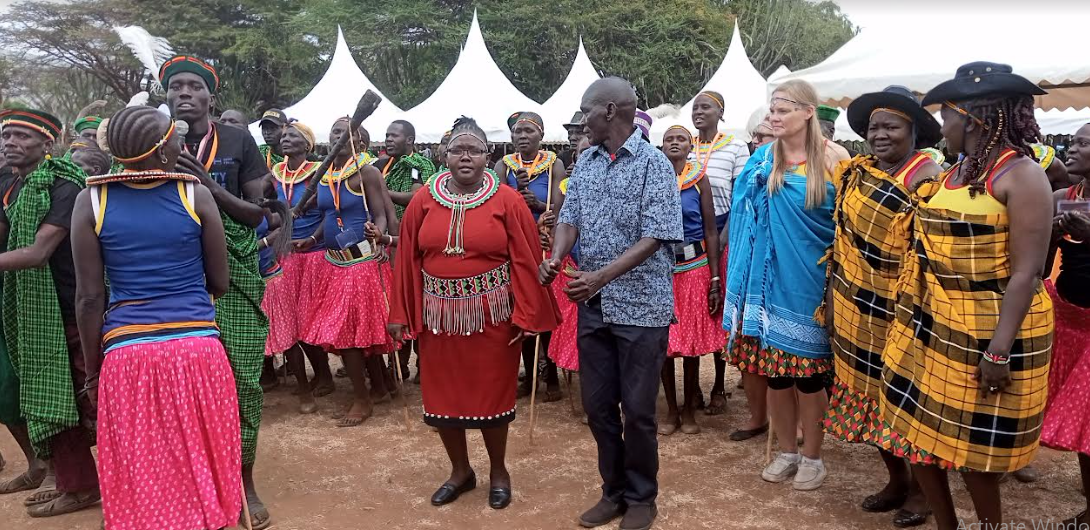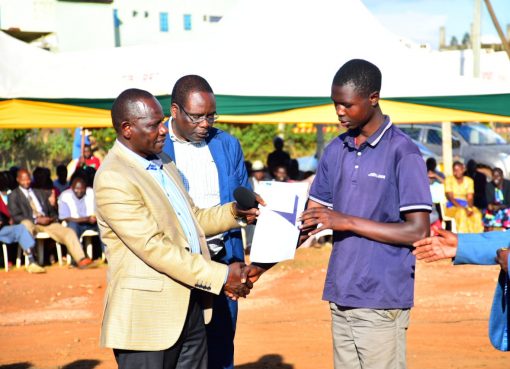The simple “C” Change (Community Change) model is one of the successful stories in the remotest areas where Female Genital Mutilation (FGM) and early forced marriage vices are prevalent.
One area where the model is working in West Pokot County is Alale, which borders Uganda and has many cases of cross-border FGM and early forced marriages.
The new community-owned strategy supported by the World Vision Organisation has effectively been used to stamp out retrogressive cultural practices of Female Genital Mutilation (FGM) and early forced marriages through promoting education among young girls in remote areas within the county.
The model for the Social Action project is a process of facilitated interpersonal dialogue in which communities explore in depth the underlying beliefs, socio-cultural norms, and traditional practices that either challenge or support their progress towards improving the well-being of children.
Through this dialogue, community members are empowered to come up with their own solutions and plans for social change.
West Pokot World Vision Programmes Manager Tom Masinde said that it is an appropriate and effective approach for addressing issues such as early child marriage, female genital mutilation (FGM), stigma or discrimination against vulnerable groups, cultural norms around the value of education, inequitable control and decision-making rights in the household, misinformed perceptions about family planning, and forms of violence, abuse, and exploitation (such as domestic, gender-based, and inter-familial violence as well as the abuse and exploitation of children).
“Two circumcisers have dropped the knives at Alale. In one of the villages, there was no school, and in the other, there was no road to the Early Childhood Development (ECDE) center. Last December, no FGM case was reported in the area,” Masinde said.
He explained that residents meet three times a week in groups where they identify their problems and the root cause and develop action plans or solutions.
“They are saving and borrowing to support children in school,” he revealed.
He added that the programme also deals with sanitation and hygiene, and members have constructed 39 latrines in the area.
“Most of the homesteads had no toilets, but more than half now have. They also have a shelter where children can study,” mentioned the programme manager.
He explained that the approach involves members being trained by community-based trainers to address the mindset that has seen top ex-circumcisers reform and surrender their knives.
He added that more than 300 children have enrolled in schools, and self-help groups have been formed to improve the income of residents who have now shunned the vices.
“A total of 540 community members have joined the bandwagon of fighting the vices and protecting girls in the community. Groups have also been formed to spearhead advocacy against retrogressive practices,” said the programme manager.
It was also mentioned that residents have cleared a 13-kilometre road to enable accessibility in the area.
Alale Assistant County Commissioner (ACC), Maurice Ogweno, confirmed that FGM prevalence in the area has reduced, disclosing that only one FGM incident has been reported this year and the culprit was arrested.
“Our people are nowadays very alert, and the incidents are becoming minimal,” said Ogweno.
He attributed the success to the massive sensitization programmes mounted through public barazas, with a focus on areas where FGM cases have previously been prevalent.
“We always have regular village elder meetings. This has enabled the rate of FGM and early forced marriages in the area to reduce by 5 per cent,” noted the ACC.
West Pokot County First Lady Scovia Kachapin called on the beneficiaries of the project to be education ambassadors in the area.
Mrs. Kachapin reiterated the need for the community to ensure the success of their children in life through the promotion of their education, regretting that many have been married off at early stages, hence being exposed to complications during childbirth.
Teresa Cheptoo, a child protection officer at World Vision Kenya in West Pokot, said that the model has saved many girls from retrogressive practices. “It has taken time to see change, but it has now come,” she said, adding that the programme started six months ago under trees and churches.
During a ceremony held at Alale, two top circumcisers dropped their knives.
Teresa Cheparngachar, a reformed circumciser, says that she is now engaged in an alternative way of earning a living.
“I used to make Sh30,000 in a month for cutting girls. I used to charge Sh1,000 per girl,” she narrated.
Another ex-circumciser, Rosaline Luka, said they are now on the frontlines, protecting young girls.
“C change has transformed us, and we are now engaging in development. We are protecting our children. Our children were not going to school. We used to stay in the bush, but now we are engaged in profitable businesses,” she said.
Musa Lotupot from Nasal village said they have taken their children to school.
“We used to take our daughters for the cut, but we have stopped. We are now sensitising our children not to be cut,” he said.
By Richard Muhambe and Anthony Melly




